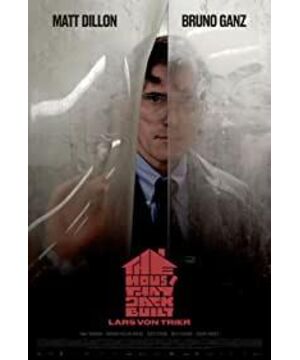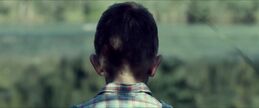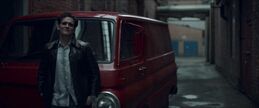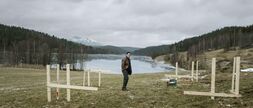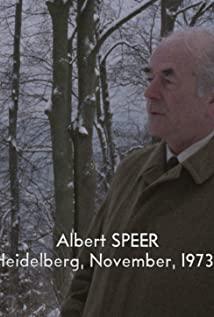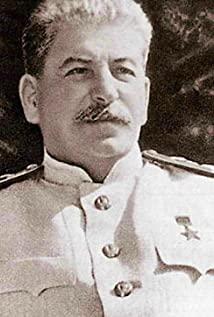1. This house is built by me (The House That Jack Built, 2018) is by no means erudite. Whether it is a literary classic or a quotation from a painting, it is the material used to construct the story, or to contrast it. , is the auxiliary wing of the essence of the film.
2. For me, the core issues discussed in the whole film are raised in the first hour or so, and then reproduced at the end of the film. The lines in that section are very literary, and the screen jumps are very special. If you re-state it in plain language, it will be as follows. That is, when the protagonist's murder story entered the second chapter, a heavy rain washed away the definite traces of his crime. On the surface, he was an exonerated person, but there was a voice inside asking, "Will this rain be true? It makes you feel a pity, do you have any expectation in your heart, in fact, you hope that there will be no rain?" Then, the screen flashes back to the scene where he played hide and seek as a child, he escaped into the reeds, and the reeds he stepped on collapsed. , leaving a long trail behind him. The voice-over asked him, "Is there a possibility that you want to be discovered?" The protagonist of the story did not speak for a while - it was tacit consent, after that, he replied: "The emotion that replaced it was actually that I was surprised, even though I stayed So many traces, but they didn't find me, or rather, they caught me so late!" Immediately afterwards, the protagonist of the story remembered a story in the countryside, where the farmers were weeding, and he listened to their breathing Voice. At this time, the film gradually amplifies the sound of the gossamer in the farmer's nose, allowing the audience to listen to the regular and rhythmic breathing sound, so we fully realize that this murderer who enjoys death also has a desire to live in his heart - he desires to be When caught, he longed for the crime to be stopped, he longed for redemption, and he longed for the breath of life. Jumping to the final chapter of the movie, we glimpse that the paradise in the heart of the murderer is exactly that piece of rural land. Therefore, even though he has fallen into hell, in the end he is still begging for a chance to escape his doom.
3. This film makes a series of listings from children's curiosity about dismembering animals, personal violence, to the destructive history of human beings. Jack cuts off a duck's leg to a milestone of historical tyranny - the birth of the Colosseum, is there any salvation for the human species? I think the answer given by Lars von Trier is still yes.
4. The double-image discussion of the two street lamps in the movie, in fact, what has not been revealed is the discussion of the unity of life and death, just like Zhuangzi's theory of the equality of things. When you feel the extreme, regret will follow. We see the horror and abomination of the murderer, can we see the sympathy behind him? Doesn't the bright light also show the dark nature in the negative? This is also the reason why I made this room better than The Joker (Joker, 2019). In the shaping of the drama, in the end, the Joker thinks that he is a bad life, a decay syndrome of necrophilia and death worship, but Jack's story goes deep Touching the cry of human nature, there is a desire to live in the powerful destructiveness that has been internalized and almost become a reflex action.
An excerpt from the script is attached:
Jack: I was a very sensitive child when I was young, and was very afraid of playing. For example, when I was playing hide-and-seek, whenever I wanted to hide, I would panic and run to a patch of reeds to hide. Voiceover: I saw not just a scared child, I saw a child with another mysterious target. Choosing to flee into the reeds is an escape, yes, but also an open invitation to pursuers, as a clear path of fallen reed poles is left behind. Did you have a "come, come and catch me" mentality for you as a child? Or, perhaps more importantly, when you grow up? Didn't you have a trace of disappointment when that rain washed your tracks away from arrest? Jack: It's more of a marvel - when I look back at everything I've done in my life and never get any punishment...As a kid I loved watching the men in the village mow the grass with their scythes. At the time, people said it was "breathing in the meadow". Everyone works in rhythm, exhaling when the sickle is drawn and inhaling when the sickle is retracted. (Weeding sound, breathing sound, weeding sound, breathing sound, breathing sound, breathing sound...) Jack: When I listened to this breath, it was as if this prairie appeared in my consciousness.
Excerpt 2 of the script is attached:
Voiceover: What about confession, Jack? People I deal with are generally remorseful. Jack: I have nothing to regret, no matter how long we have to go. One thing I did think about, though, was to imagine a person walking down a street, under a streetlight. Just as he walked under a lamp, his shadows were the most intense, but the least area covered. As he continued to move forward, his shadow continued to expand in front of him. The shadows are getting bigger, bigger, and lighter. And the shadow behind him appeared because of the light of the next lamp, and then became smaller and smaller, until the man walked directly under the street lamp, his shadow reached the thickest and darkest. Let's say it's me standing under the first street light, and I've just committed a murder. I feel powerful and fulfilled. Then I started walking, and the shadow in front of me was getting bigger and bigger, like my pleasure, but at the same time, the pain was coming, like the shadow behind me being lit by the next street light. Then, in the middle of two street lamps, the pain was so intense that it overshadowed my pleasure. Every time I took a step forward, the pleasure gradually dissipated and the pain gradually increased. In the end, the pain was so unbearably intense that it forced me to act, so when I got to that apex of the next light, I would kill again. Voiceover: I know you want to be different, Jack. But let's face it! This metaphor can be used to describe any addict's excuse to excuse himself. An alcoholic would get drunk at that apex under the lamp.
View more about The House That Jack Built reviews


